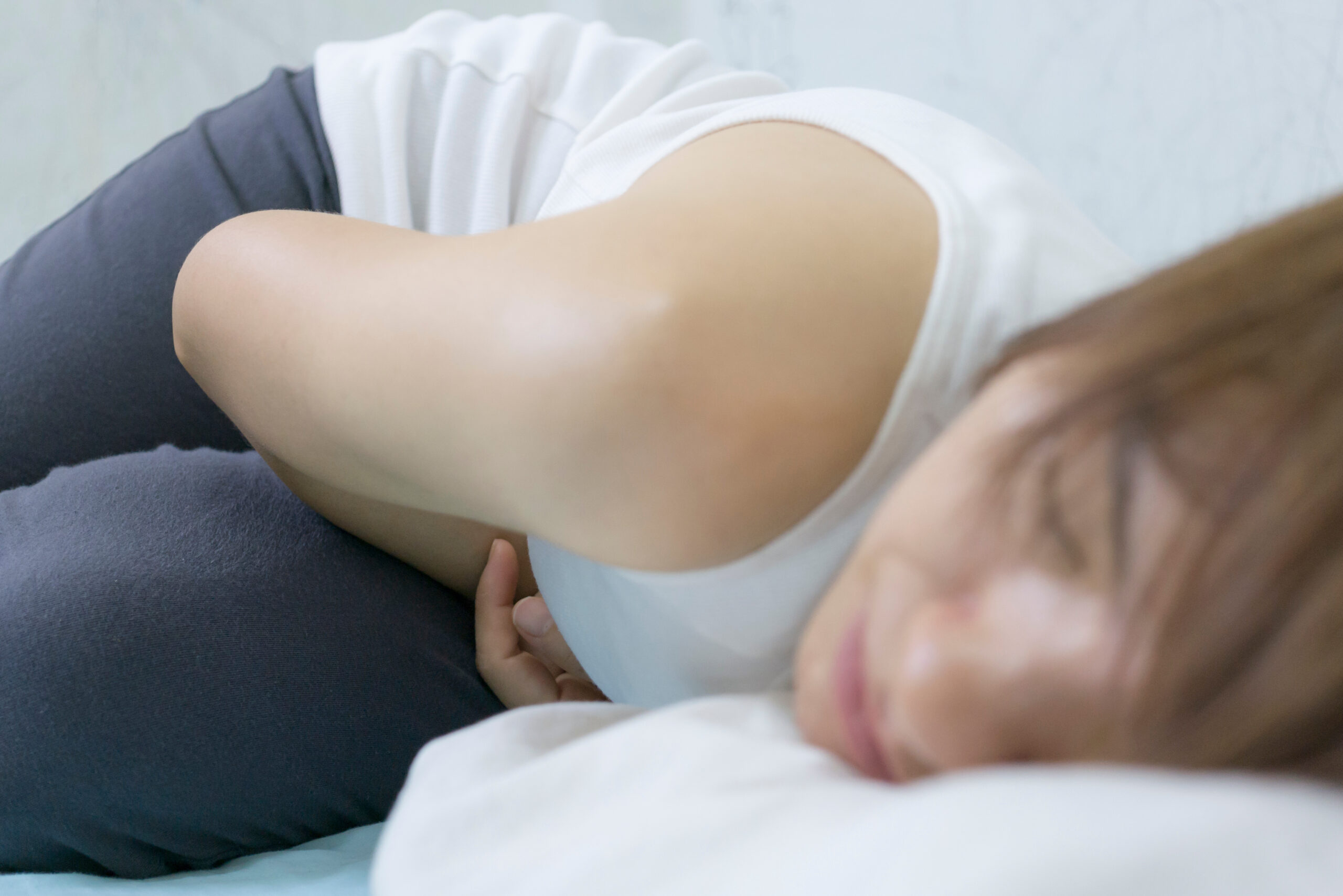Over-the-Counter Pain Relievers:
Nonsteroidal anti-inflammatory drugs (NSAIDs) like ibuprofen or naproxen can help reduce menstrual pain and inflammation. Take them as directed on the packaging.

Focus on the hands of women who are holding the stomach for pain.
Heat Therapy:
Applying a heating pad or hot water bottle to your lower abdomen can help relax muscles and alleviate cramps.
Light Exercise:
Gentle exercises like walking, stretching, or yoga can improve blood circulation and ease discomfort.
Hydration and Diet for Menstrual Pain:
Staying hydrated can help reduce bloating and ease cramps. Opt for balanced, nutrient-rich meals with whole grains, fruits, vegetables, and lean proteins.
Herbal Teas for Menstrual Pain:
Herbal teas like chamomile, ginger, and peppermint can have soothing effects and help relax tense muscles.
Relaxation Techniques for Menstrual Pain:
Practicing deep breathing, meditation, or mindfulness can help reduce stress and promote relaxation.
Avoiding Certain Foods:
Limiting caffeine, salt, and sugary foods can help reduce bloating and discomfort.
Hygiene and Comfort:
Using comfortable menstrual products and maintaining good hygiene can contribute to your overall comfort during your period.
Essential Oils:
Some essential oils, like lavender or clary sage, when diluted and used appropriately, can have calming and pain-relieving effects.
OTC Supplements for Menstrual Pain:
Some supplements like magnesium, vitamin B6, and fish oil may help alleviate menstrual symptoms. Consult a healthcare professional before adding supplements to your routine.
Plenty of Rest:
Make sure you get adequate sleep and rest, especially during your period.
Keep a Menstrual Diary:
Tracking your symptoms and pain levels can help you understand your patterns and manage discomfort better.
Talk to Your Doctor:
If your menstrual pain is severe, lasts for more than a few days, or is interfering with your daily activities, consult a healthcare provider for further evaluation and personalized recommendations.
Remember that what works for one person may not work the same for another, so it’s essential to try different approaches and find what suits you best. If your menstrual pain is unusually severe or disrupting your life, it’s always a good idea to seek medical advice to rule out any underlying conditions.


